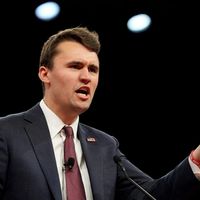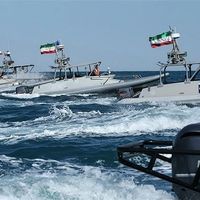Iran’s ongoing nuclear program continues to pose one of the world's biggest threats to peace. In April, Rafael Grossi, the Director-General of the International Atomic Energy Agency, announced that Iran has significantly moved towards the threshold of being able to produce a nuclear bomb in days rather than weeks.
According to his account on X, Borrell also stressed “the importance of restraint and de-escalation in the region,” which has witnessed intense tensions in recent weeks following tit-for-tat military attacks between Israel and Iran. “I explained EU’s sanctions on Iran’s UAVs and missiles,” Borrell wrote on X in reference to the recent bans against Tehran following the regime’s April 13 missile and drone offensive on Israeli territory.
Further in his conversation with Iran’s top diplomat, Borrell discussed the case of EU citizens who have been detained in Iran, including a Swedish EU representative, one of multiple diplomatic hostages held in Iran.
The call came a week after the European Parliament slammed the Iranian regime’s notorious “hostage diplomacy,” demanding that the bloc “launch a strategy to counter it with a dedicated task force to better assist detainees’ families and effectively prevent further hostage-taking,” according to the parliament’s website.
Last month, Iran's head of the Atomic Energy Organization said plans continue to expand the number of nuclear power plants in the country, aiming to reach a production capacity of 20,000 megawatts of nuclear electricity.
However, while Iran continues to exceed levels of 60 percent purity for uranium enrichment in the face of global sanctions, the IAEA has admitted no country with plans for the peaceful uses would need to exceed the set levels.









